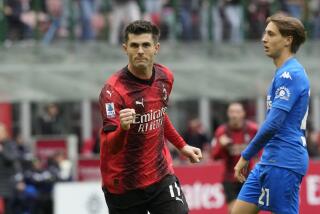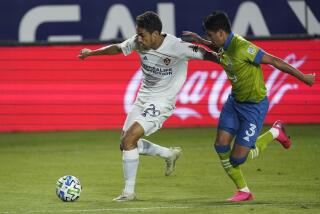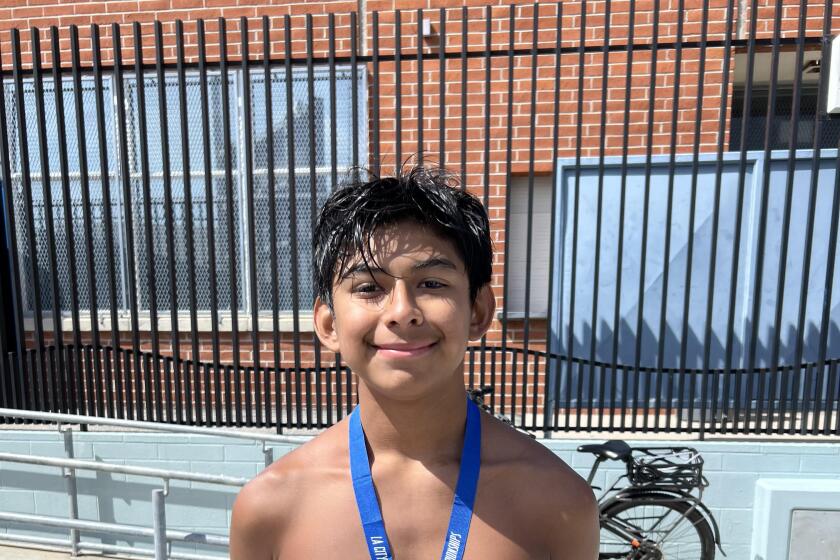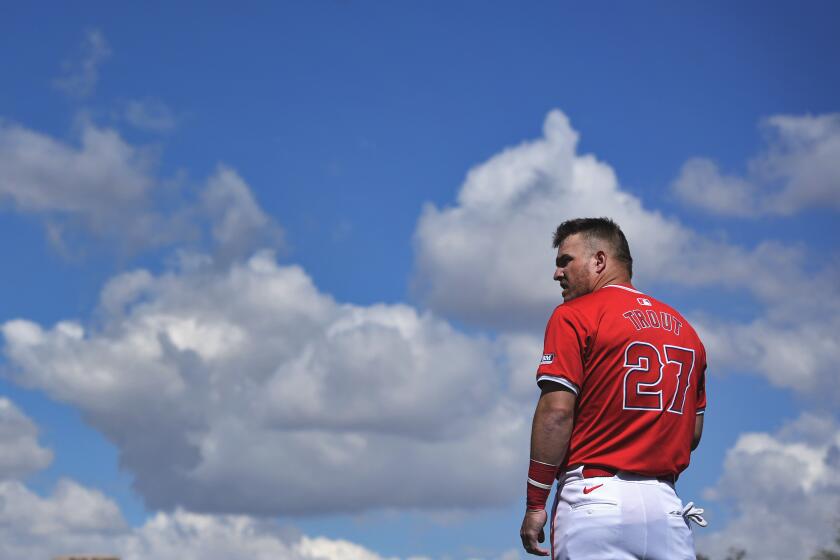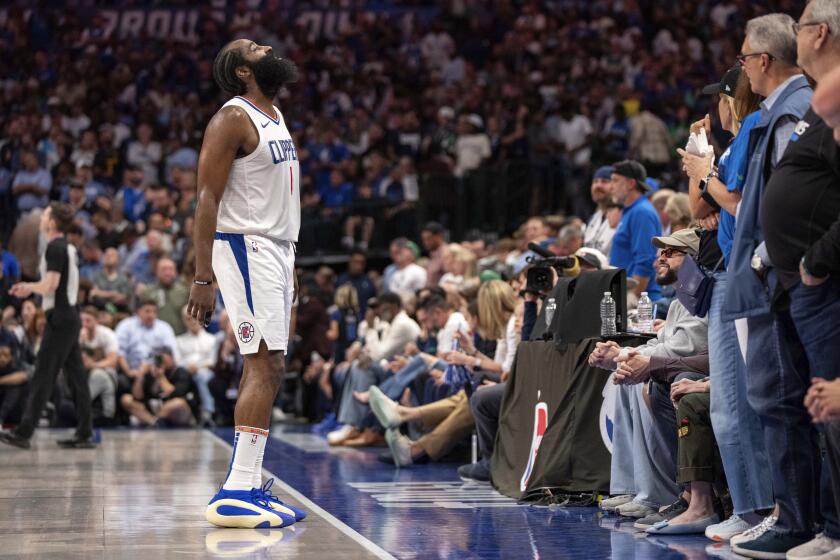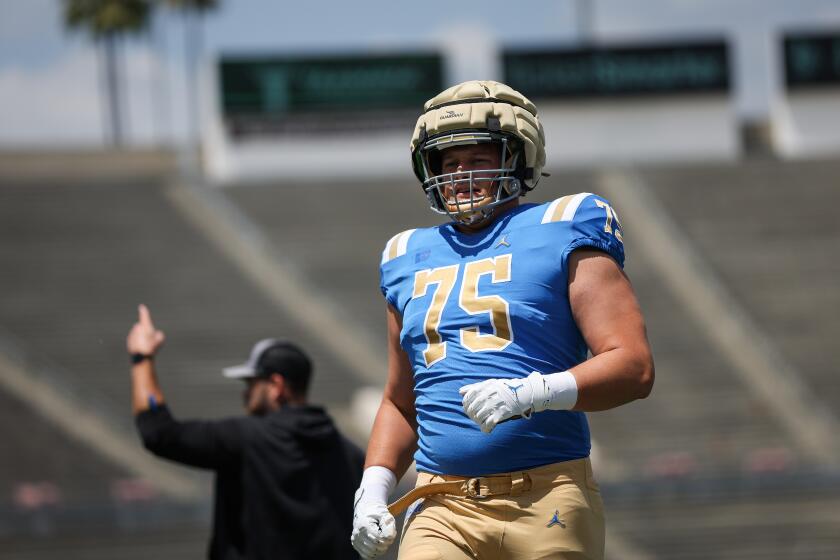U.S. soccer phenom Christian Pulisic is pumping up fans in the German Bundesliga
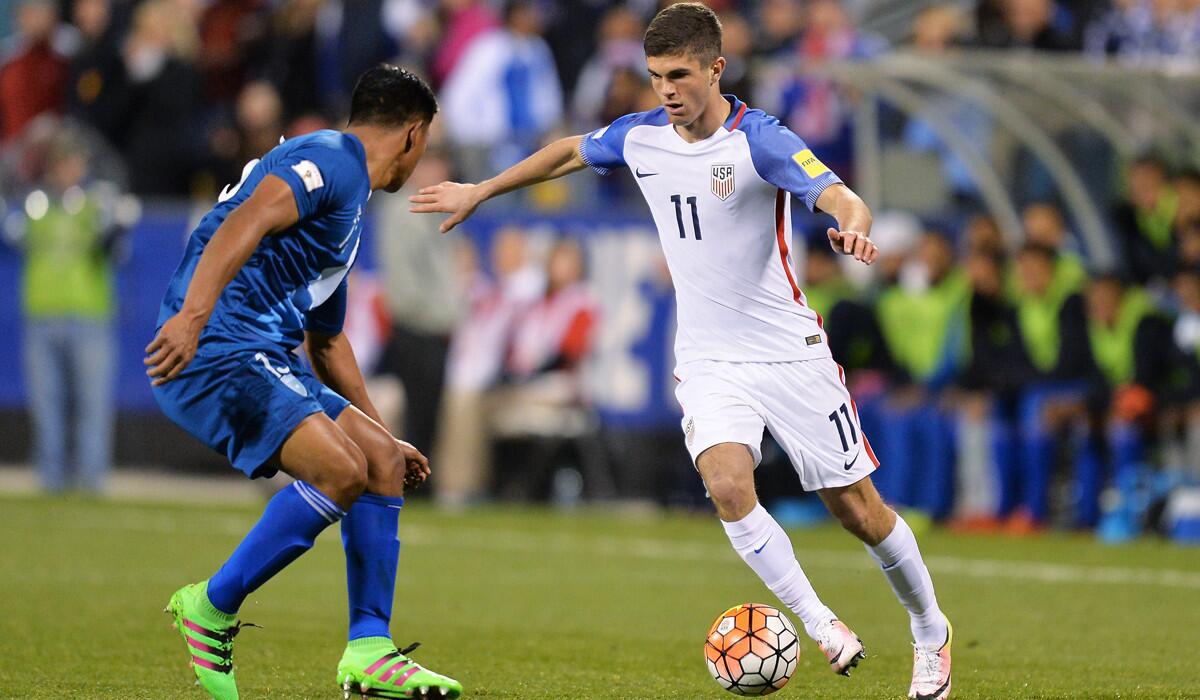
United States’ Christian Pulisic maneuvers with the ball against Guatemala’s Carlos Castrillo in the second half during the FIFA 2018 World Cup qualifier on March 29.
Christian Pulisic isn’t even old enough to drive a car in Germany. But the 17-year-old American has driven soccer fans here into a frenzy since breaking into the first team at Borussia Dortmund in January.
With his goal against Hamburg SV last weekend, he became the youngest non-German to score in Bundesliga history. Three weeks before that he became the youngest man to play for the U.S. national team in a World Cup qualifier, coming off the bench in the 81st minute of a 4-0 win over Guatemala.
“With the statements he sends out there — scoring his first goal for Dortmund, starting a game in the Bundesliga, getting valuable minutes in that very intense environment — he sends messages out toward what happens with the national team as well,” said U.S. Coach Juergen Klinsmann, who will soon be choosing a roster for June’s prestigious Copa America tournament. “He makes a case, similar to other players who are trying to get on the right track now, trying to perform with their club teams, and he knocks at the door breaking into the 23-man roster for the Copa America.”
Pulisic has taken a short but eventful journey to soccer stardom on both sides of the Atlantic, one that started in 2014 when he moved to Germany from Hershey, Pa., with his father Mark, a former pro indoor soccer player for the Harrisburg Heat.
Two years later, Pulisic speaks fluent German and has completely integrated himself into a tradition-laden team famous for developing talented teen players such as Lars Ricken, Nuri Sahin, Mario Goetze and Marcel Schmelzer.
“Christian’s a great kid and I like him a lot,” said Sahin, who acknowledged he didn’t have the same confidence as Pulisic when he broke into the first team as a 16-year-old. “He’s a super soccer player and he’s been going down the same path I went down years ago. He’s got an enormous amount of talent and we’re really happy to have him on the team.”
A midfielder, Pulisic needed just 15 games with Dortmund’s under-17 and U-19 teams to prove he belonged on the first-team roster. He made his Bundesliga debut in late January, then made his first appearance in the UEFA Europa League three weeks later.
But he made his first big impression against Liverpool in the Europa League quarterfinals, when he came off the bench and played with a maturity and confidence that belied his age. Ten days later he became the fourth-youngest player to score in the 53-year history of the Bundesliga in a win over Hamburg that helped second-place Dortmund keep pace with league-leading Bayern Munich.
“It’s a great feeling. Just incredible,” he said. “I’m happy for every minute I can get on the field.”
Pulisic’s newfound maturity and confidence haven’t gone unnoticed in the U.S., where Klinsmann is searching for young players around whom to rebuild a national team that has grown old quickly. Expect Pulisic, who was captain of the U.S. team at last year’s U-17 World Cup in Chile last year and who scored 22 goals in 44 games for the U.S. under-17 and under-19 teams, to be a big part of that makeover.
“He has a tremendous amount of talent, there’s no doubt about it,” said Klinsmann, a former national team player and coach in Germany who pushes his U.S. players to test themselves in the crucible of European soccer.
“We’re thrilled he gets the opportunity to play in the first team [at Dortmund]. If you’re proving your point at the age in such a big environment there, it shows you have the confidence, you have the courage.”
So when Klinsmann sent Pulisic on to the field for the final nine minutes against Guatemala, it wasn’t so much an audition as it was a job offer because that game cap-tied the teenager to the U.S. senior team, ending any possibility he would play for Croatia, where family ties also gave him national team eligibility.
The appearance also gave him a chance to impress his new teammates.
“He was great,” said midfield partner Kyle Beckerman, who also lauded Pulisic’s maturity. He was really comfortable already, especially for a 17-year-old. It seems like he has a really good head on his shoulders.
“He’s got the poise in his play … and he stood right in and showed a lot of promise. It’s exciting for the future.”
But Pulisic hasn’t just won over people in the U.S.. He’s also impressed a difficult-to-please audience in Dortmund, where soccer is a bigger part of daily life than in any other German city. A Ruhr River industrial town of 580,000 in Germany’s rust belt, Dortmund is the country’s seventh-largest city but it has the Bundesliga’s largest stadium . And it’s been sold out for years.
Matthias Dersch, a beat reporter who covers Dortmund for the Ruhr Nachrichten newspaper, said Pulisic has shaken off a reputation for being tentative at times.
“He was just a little bit too much of a nice guy when he got a chance to practice with the [first] team last fall,” Dersch said. “But by the time he got another chance at the midseason training camp in January he had changed that and impressed the coaches. He’s really fast, dynamic, technically solid and learns fast.
“He needs to become a bit more robust and get better at taking advantage of certain situations. But he fits right into [the club’s] philosophy.”
Still, Mike Ehlert, a 50-year-old prison worker, added it was taking some adjustment for soccer fans to get used to have a young and talented American on the team.
“He’s got a bright future in front of him,” Ehlert said. “He’s not only young but courageous, really, really good and works hard. There haven’t been many great American soccer players around yet.
“But Christian could change that.”
More to Read
Get our high school sports newsletter
Prep Rally is devoted to the SoCal high school sports experience, bringing you scores, stories and a behind-the-scenes look at what makes prep sports so popular.
You may occasionally receive promotional content from the Los Angeles Times.
